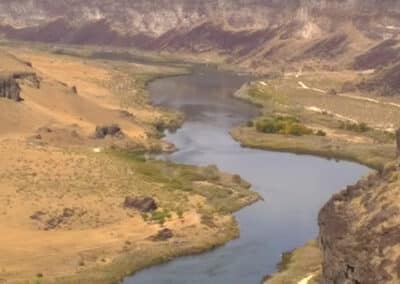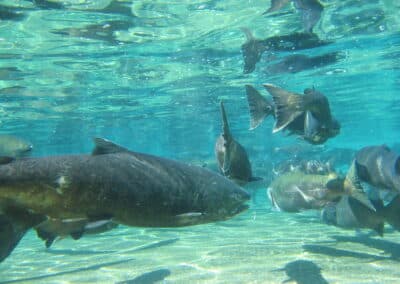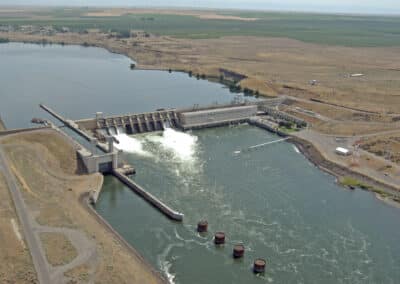Protecting Endangered Species in Idaho Waters from Toxic Metals
Following federal findings, a formal petition seeks long over-due action by the
U.S. Environmental Protection Agency
NWEA petitioned the U.S. Environmental Protection Agency (EPA) today to adopt water quality standards for five toxic pollutants in Idaho waters that other federal agencies have determined jeopardize endangered aquatic species such as Snake River salmon and steelhead, Kootenai River white sturgeon, and bull trout.
NWEA submitted the petition to EPA based on findings made nearly a decade ago about the hazards of cyanide, lead, arsenic, nickel, and zinc to fish and snails in Idaho waters.
“When it comes to protecting species in Idaho waters from toxic pollution, such as is discharged by mining operations across the state, EPA ignores both the science and the demands by expert fish and wildlife agencies,” said Nina Bell, NWEA Executive Director. “Snake River salmon and steelhead have a hard enough time migrating from the Pacific Ocean to Idaho without suffering a toxic assault when they arrive.”
The National Marine Fisheries Service and U.S. Fish and Wildlife Service instructed EPA to adopt new standards for the toxic pollutants nine and eight years ago respectively. In their formal opinions, the agencies set dates ranging from 2017 to 2023 for EPA to complete the work.
Those expert opinions were the result of a successful lawsuit brought by NWEA to force the fish and wildlife agencies to evaluate pollution impacts to Idaho’s threatened and endangered species. The resulting opinions found the five metals—along with copper, selenium, mercury and a metals methodology—jeopardize threatened and endangered fish and snail species in Idaho.
Mercury is not included in today’s petition to EPA because NWEA won a lawsuit in 2021 over EPA’s failure to adopt new, protective mercury standards for fish in Idaho waters. EPA is also under a separate court order to adopt new arsenic standards for the protection of human health in Idaho, the result of another NWEA lawsuit.
“It’s ridiculous that environmental organizations and federal courts must babysit EPA every step of the way,” said Bell. “After multiple lawsuits to get to this point, we are beyond disappointed that EPA can’t just simply do its job and get protective water quality standards in place to protect Idaho waters. Instead, we have to file a petition.”
Such petitions have an effect. Last week, EPA issued a formal determination that nine of the State of Washington’s water quality standards fail to protect threatened and endangered species such as salmon, steelhead, and orcas. The EPA action was the result of a 2013 NWEA petition and two lawsuits in which a federal court pointed out that “EPA’s Waiting-for-Godot approach . . . cannot be justified with the framework or purpose of the [Clean Water Act].” The nine toxic pollutants identified as failing to protect aquatic life in Washington waters include acrolein, aluminum, arsenic, cadmium, copper, cyanide, mercury, nickel, and selenium.

Protecting Endangered Species in Idaho Waters from Toxic Metals

EPA Must Protect Idaho Salmon from Mercury Pollution

